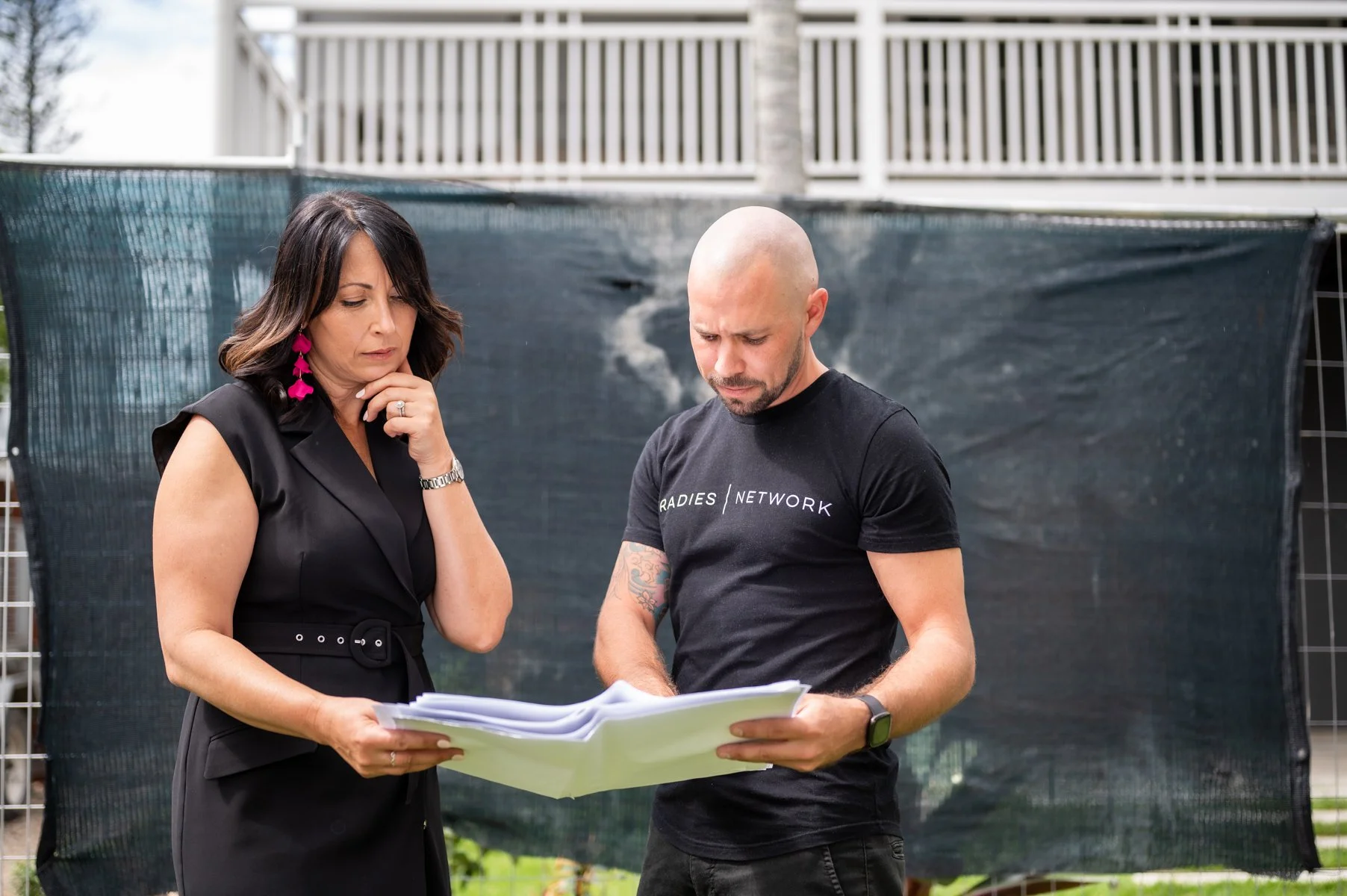With all the talk about builders collapsing in the market right now, I though it would be handy to provide some tips on how to ensure the building contract you sign is air tight!
When undertaking any construction project, big or small, a solid and well-crafted building contract is crucial. Here are some ESSENTIAL TIPS to ensure your building contract is airtight.
Clear Scope of Work
Ensure there is a clearly define scope of work of inclusions and exclusions. This helps in avoiding misunderstandings later on about what the builder is responsible for and what falls outside the agreed-upon tasks.
Detailed Timeline
Ensure there is a detailed timeline for the project, outlining key milestones and completion dates for each phase. This ensures that both parties are on the same page regarding deadlines and expectations.
Payment Terms and Schedule
Make sure the total contract price is clearly stated along with a payment schedule and any conditions for payment (e.g., milestones, completion of phases). This prevents disputes over payment and ensures that the project funds are disbursed in a structured manner as work progresses.
Materials and Specifications
Specify the types and quality of materials to be used, including brands and models where applicable. This prevents substitutions of inferior materials and ensures that the project meets the expected standards and specifications.
Variation Procedures
Understand the process for variations - any modifications to the original contract. This should include how changes are requested, approved, and how they will impact the project timeline and budget.
Insurance and Liability
Ensure the builder has appropriate insurance coverage (e.g., liability insurance, worker’s compensation). Understand the liability for damages, injuries, or delays caused during the project and dispute resolution procedures.
Warranties and Guarantees
Be sure to understand the warranties for materials and workmanship provided by the contractor. Including the process for addressing any defects that arise after project completion.
Permits and Regulatory Compliance
Clarify responsibilities regarding obtaining necessary permits and complying with local building codes and regulations. Failure to comply can lead to costly delays and legal issues.
Completion and Acceptance Criteria
Define the criteria that must be met for the project to be considered complete and accepted by the client. This includes inspections, testing, and any final walkthroughs to ensure all work meets expectations.
Signatures and Date of Commencement
Ensure that the contract is signed by all parties involved and dated. This makes it legally binding and establishes the start date of the project, providing a clear timeline for performance.
Would you feel more confident with an expert by your side? Book a Free Design Chat to see how we can help!
